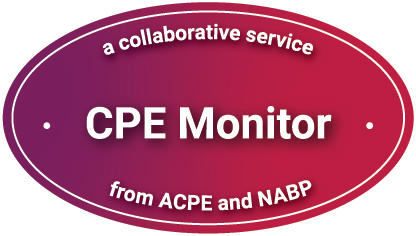Thursday, May 22, 2025
- Describe the trends in weight loss medications over the past 100 years
- Describe how weight loss medications impact patients at a metabolic level, which can have an impact on other chronic therapies
- Discuss the evolution of pharmacological approaches in weight loss medications over time
- Identify the changes in metabolic targets used in weight loss therapies over time
- Describe the trends in weight loss medications over the past 100 years
- Describe how weight loss medications impact patients at a metabolic level, which can have an impact on other chronic therapies
- Identify the changes in metabolic targets used in weight loss therapies over time
- Discuss how deepening relationships with patients and colleagues enhances pharmacy practice
- Identify key principles of connection to improve patient counseling, adherence, and trust in pharmacy services
- Identify strategies to strengthen team collaboration and engagement, leading to a more positive and productive work environment
- Review a personal connection plan where the plan enhanced leadership, patient relationships, and career growth in pharmacy
- Describe key federal and state regulations governing controlled substance handling and management, including DEA record keeping, prescription filling requirements, and drug diversion reporting obligations
- Differentiate common methods of drug diversion in both inpatient and outpatient pharmacy settings
- Identify red flags and behavioral indicators of potential drug diversion and/or misuse
- Explain common psychotropic medication classes and their indications in patient care
- Describe important factors to consider for medication reconciliation in the behavioral health population
- Identify behavioral health resources, both locally and nationally
- List common psychotropic medication classes and their general indications
- Describe important factors to consider for medication reconciliation in the behavioral health population
- Identify behavioral health resources, both locally and nationally
- Outline biological, social, and environmental factors that has led to the current obesity epidemic
- Compare the effectiveness of lifestyle modifications to medication therapy in the management of obesity
- Review pediatric and adult obesity guidelines focusing on medication therapy
- Describe the unique challenges and considerations in pediatric medication safety
- Identify common medication errors and methods to prevent them in pediatric patients
- Review best practices for calculating, preparing, and dispensing pediatric doses
- Recognize the role of pharmacists and pharmacy technicians in preventing medication-related adverse events
- Identify high-alert medications in the ICU
- Outline strategies for preventing medication errors in high-stress environments
- Review look-alike/sound-alike drugs utilized in the critical care setting
- Discuss light-sensitive and temperature-sensitive medications from other common medications in the critical care setting
Date: May 22, 2025 08:00 AM - 04:30 PM
CE Hours
CE Units
Activity Type
- Knowledge-Based and Application-Based
Target Audience(s)
- Pharmacy Technicians
- Pharmacists
Accreditation(s)

|
The University of South Carolina College of Pharmacy is accredited by the Accreditation Council for Pharmacy Education as a provider of continuing pharmacy education.
|
Co-Sponsor(s)
Requirements for CE Credit
Registration closes on Jul 22, 2025
at 01:00 AM
Registration Closed
- Describe the trends in weight loss medications over the past 100 years
- Describe how weight loss medications impact patients at a metabolic level, which can have an impact on other chronic therapies
- Discuss the evolution of pharmacological approaches in weight loss medications over time
- Identify the changes in metabolic targets used in weight loss therapies over time
- Describe the trends in weight loss medications over the past 100 years
- Describe how weight loss medications impact patients at a metabolic level, which can have an impact on other chronic therapies
- Identify the changes in metabolic targets used in weight loss therapies over time
Speaker(s)/Author(s)
|
Tim Gentilcore, PharmD
|
Activity Number
0062-9999-25-045-L01-P/TCE Hours
Registration Closed
- Discuss how deepening relationships with patients and colleagues enhances pharmacy practice
- Identify key principles of connection to improve patient counseling, adherence, and trust in pharmacy services
- Identify strategies to strengthen team collaboration and engagement, leading to a more positive and productive work environment
- Review a personal connection plan where the plan enhanced leadership, patient relationships, and career growth in pharmacy
Speaker(s)/Author(s)
|
Fatima Ghzala, PharmD
|
Activity Number
0062-9999-25-046-L99-P/TCE Hours
Registration Closed
- Describe key federal and state regulations governing controlled substance handling and management, including
- DEA record keeping, prescription filling requirements, and drug diversion reporting obligations
- Differentiate common methods of drug diversion in both inpatient and outpatient pharmacy settings
- Identify red flags and behavioral indicators of potential drug diversion and/or misuse
Speaker(s)/Author(s)
|
Michael Harris, PharmD
|
Activity Number
0062-9999-25-047-L03-P/TCE Hours
Registration Closed
- Explain common psychotropic medication classes and their indications in patient care
- Describe important factors to consider for medication reconciliation in the behavioral health population
- Identify behavioral health resources, both locally and nationally
- List common psychotropic medication classes and their general indications
- Describe important factors to consider for medication reconciliation in the behavioral health population
- Identify behavioral health resources, both locally and nationally
Speaker(s)/Author(s)
|
Meghan Ellinger May, PharmD, BCPS, BCPP
|
Activity Number
0062-9999-25-048-L01-P/TCE Hours
Registration Closed
- Outline biological, social, and environmental factors that has led to the current obesity epidemic
- Compare the effectiveness of lifestyle modifications to medication therapy in the management of obesity
- Review pediatric and adult obesity guidelines focusing on medication therapy
Speaker(s)/Author(s)
|
Derrick Clay, PharmD, MBA, MHA, BCEMP
|
Activity Number
0062-9999-25-049-L01-P/TCE Hours
Registration Closed
- Describe the unique challenges and considerations in pediatric medication safety
- Identify common medication errors and methods to prevent them in pediatric patients
- Review best practices for calculating, preparing, and dispensing pediatric doses
- Recognize the role of pharmacists and pharmacy technicians in preventing medication-related adverse events
Speaker(s)/Author(s)
|
Martine Abouchabki, PharmD
|
Activity Number
0062-9999-25-050-L05-P/TCE Hours
Registration Closed
- Identify high-alert medications in the ICU
- Outline strategies for preventing medication errors in high-stress environments
- Review look-alike/sound-alike drugs utilized in the critical care setting
- Discuss light-sensitive and temperature-sensitive medications from other common medications in the critical care setting
Speaker(s)/Author(s)
|
Elliott Wilch, PharmD
|

